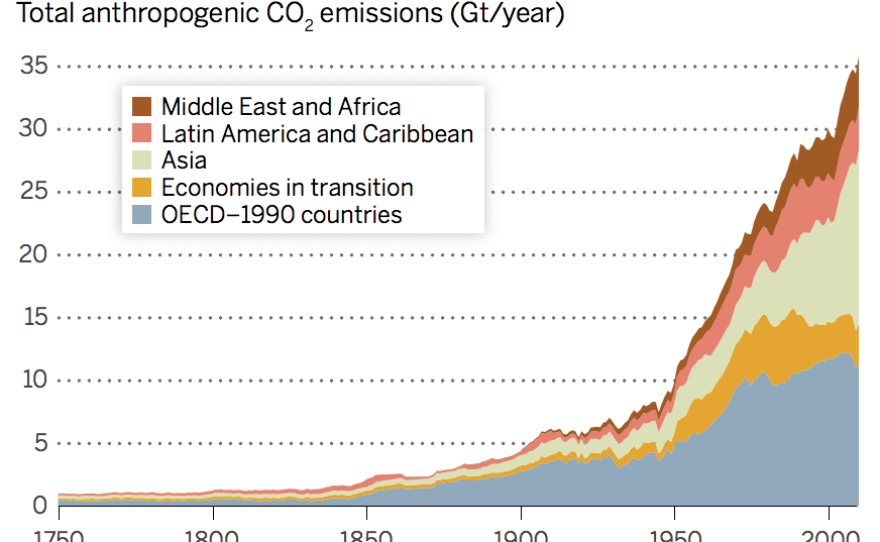A San Diego scientist says the United Nations is letting politics get in the way of progress on climate change.
UC San Diego's David Victor was one of the many researchers tapped by the U.N. to prepare a report on mitigating climate change. The group's findings were published in April, but the summary sent to policy makers excluded certain facts and figures about which countries are driving carbon emissions.
"I think they were left out because they were politically inconvenient," Victor said.
He and his colleagues found another outlet for this information. This week, they'll publish the excluded data in Science.
"We're now at a state where policy makers have actually over-stepped their bounds, and they're intruding on the scientific process," Victor said. "They're making it hard for us as scientists to tell policy makers what the scientific community actually knows."
The U.N. broadly acknowledges that richer countries tend to emit more carbon. But it stops short of categorizing countries based on their level of economic development and carbon emissions.
High-income countries like the United States and European nations may be the world's top emitters. But Victor also notes that the greatest spikes in emissions come from rapidly developing countries like China, Brazil and Indonesia.
"Most of the growth in emissions worldwide is coming from upper middle income countries," Victor said. "I think that's one of the most important scientific facts when it comes to getting serious about policy. You need to know where the emissions come from."






